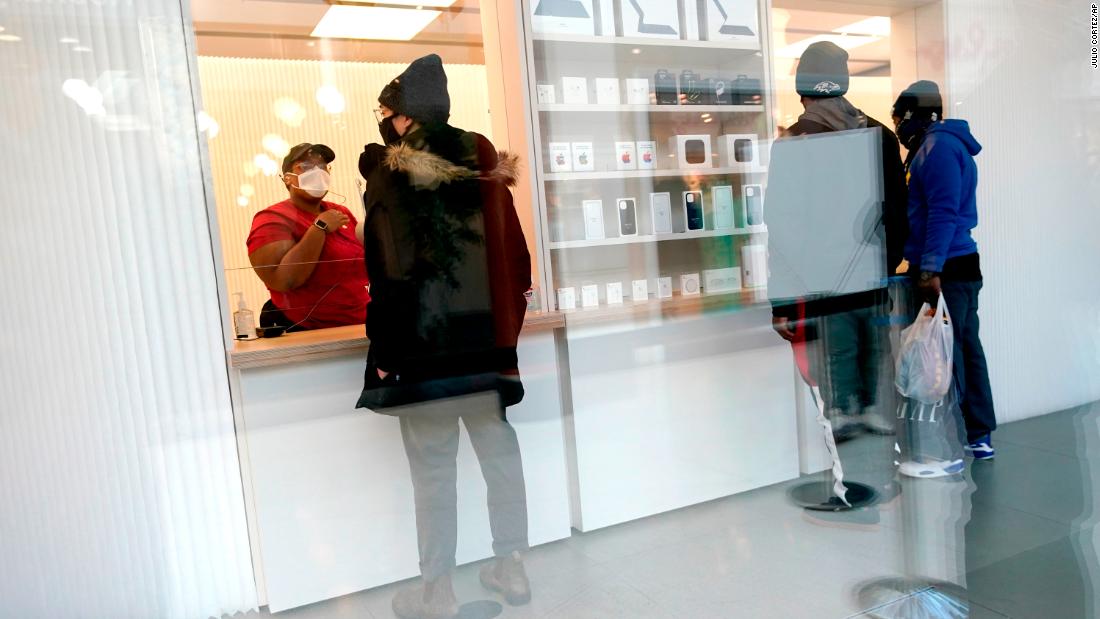The 138-year-old Simmons-Wright Company store in Kewanee, Mississippi looks like a relic, almost a museum dedicated to country life.
Its two floors are filled with cotton baskets, cast iron stoves and agricultural plows. But behind it all lies a remarkably agile company that has survived for so long by knowing how to adapt.
Country stores are a feature of rural life – the kind of places where you can buy fertilizer in one lane, lotion in the next, and crickets for bait in a third.
Many, like Simmons-Wright Company, have survived for more than 100 years learning to adapt to all the economic challenges that have come their way, from the Great Recession to the Great Depression.
Today, those stores are using those survival skills to face the latest challenge: the highest inflation the country has seen in about 40 years.
Simmons-Wright Company owner Gary Pickett says he sees the impact when his suppliers charge him more and his wallet-strapped customers spend less.
“Normally people come here to buy stuff worth $100 to $150,” he says, watching a steady dig through the house repair wall. “Now they come here and maybe buy like $20 worth of stuff.”
A question of survival
Surviving tough economic times is nothing new to Pickett or generations of his family. He inherited the business, just off the highway, after it was passed on to him by his aunt.
In 2008, the Great Recession cut through his business. In order to save the store, Pickett created a new niche for the business, selling pork skins and fried catfish in the store while delivering burgers to a line of trucks across the border in Alabama.
Stephan Bisaha/Gulf States Newsroom / Stephan Bisaha/Gulf States Newsroom
/
Stephan Bisaha/Gulf States Newsroom
Café 1884 has now become the majority of his business. It makes old knick-knacks that the store is more known as rustic decorations than real income generators.
This change helped him keep the doors open and later avoid the fate of other country stores forced to close as dollar stores replaced Walmarts as the place to shop at low prices in rural communities.
“Dollar Generals are everywhere,” Pickett says. “I’m not trying to compete with them.”
Struggling with high inflation
But Pickett now says even his restaurant is feeling the pressure of inflation and he’s rethinking how to run his 100-plus-year-old business to keep the doors open.
Before, Pickett wouldn’t hesitate to throw extra fries into the polystyrene containers he packs meals in.
But now, to track prices, Pickett’s team measures everything — even burger patties are weighed before cooking.
Store and restaurant prices have increased by approximately 15%. Really, he should have taken them another 15%, Pickett says, but he also knows he can’t raise the prices too much.
Lauderdale County, where the store is located, resembles much of the rest of the state, with about one in five residents living below the poverty line.
“Well, beef and meat have almost doubled in price,” he says. “And we’ve increased a bit, but we haven’t increased the percentage that we need to increase.”
However, Pickett knows that if inflation continues to remain high, he will be forced to raise prices even at his restaurant.
“I know we’re going to have to increase. We just don’t want to scare everyone away, regular customers,” he says.

Stephan Bisaha/Gulf States Newsroom / Stephan Bisaha/Gulf States Newsroom
/
Stephan Bisaha/Gulf States Newsroom
Another pivot?
Much like when he turned to his restaurant business, Pickett wonders if he will need more drastic changes to ensure his survival at a time when economists are also warning of a potential recession.
An idea floated by Pickett’s son is to turn the place into an event venue. His son predicts that weddings and photo shoots held in the store’s old cotton gin could fetch $10,000 per event.
The idea delves into a key element of Pickett’s current business model – nostalgia. Old nutcrackers and old soda bottles may not sell, but they attract customers.
After all, changing direction yet again would be nothing new for the Simmons-Wright company.
At one point, the entire second floor of the store was dedicated to shoes. In other years, the cotton gin and the blacksmith shop were the sources of money. He even sold coffins.
This is how generations of his family ensured the survival of the company.
“They were people who did what it took to survive,” Pickett says.
Pickett hopes his son and daughter will have to be the ones to decide on this next pivot when he finally leaves them from the store. But as he faces the current moment of inflation’s punishment, it may force him once again to figure out how to ensure the survival of the Simmons-Wright society.
Copyright 2022 Gulf States Newsroom. To see more, visit .




